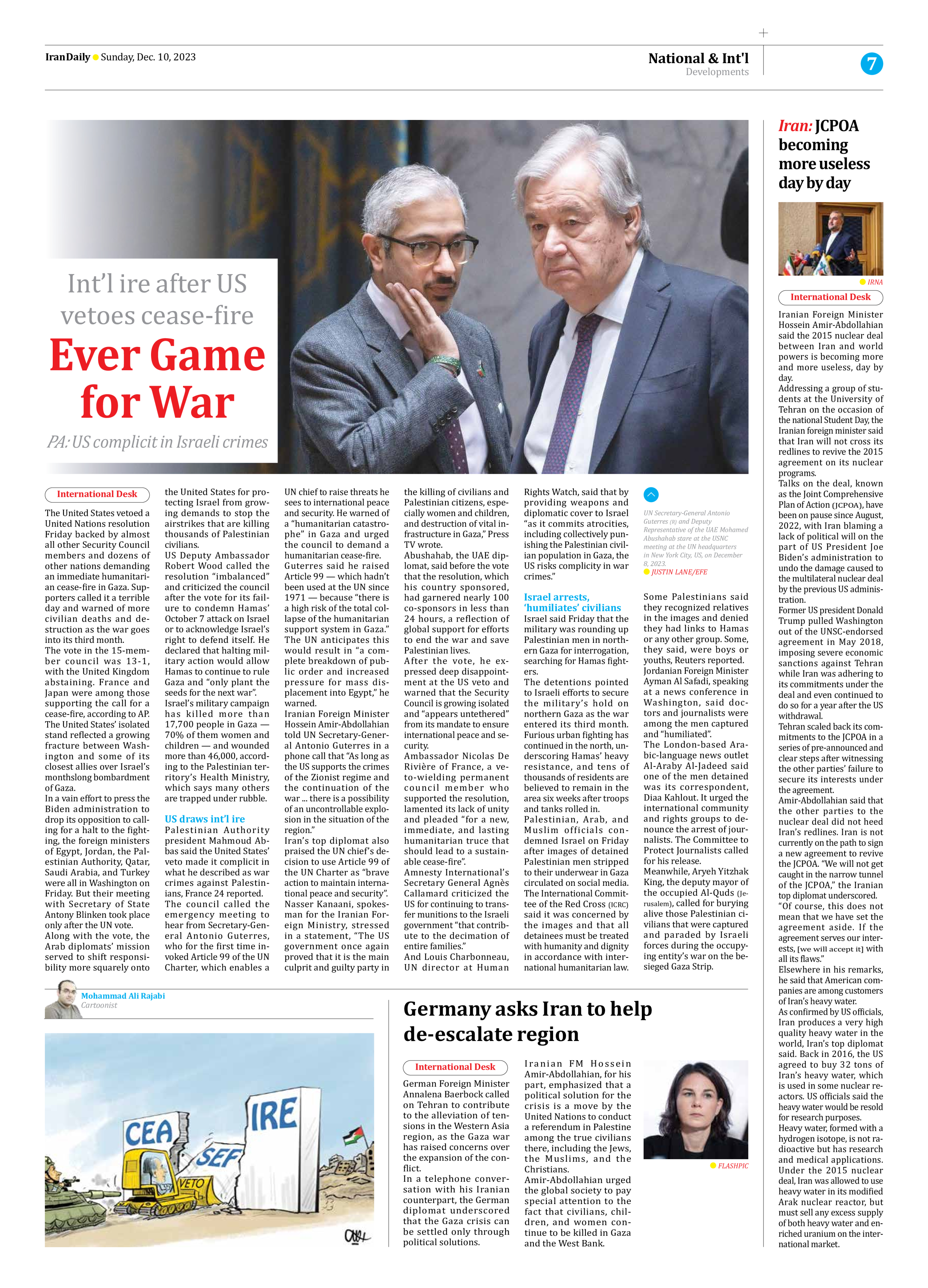
Iran: JCPOA becoming more useless day by day
Iranian Foreign Minister Hossein Amir-Abdollahian said the 2015 nuclear deal between Iran and world powers is becoming more and more useless, day by day.
Addressing a group of students at the University of Tehran on the occasion of the national Student Day, the Iranian foreign minister said that Iran will not cross its redlines to revive the 2015 agreement on its nuclear programs.
Talks on the deal, known as the Joint Comprehensive Plan of Action (JCPOA), have been on pause since August, 2022, with Iran blaming a lack of political will on the part of US President Joe Biden’s administration to undo the damage caused to the multilateral nuclear deal by the previous US administration.
Former US president Donald Trump pulled Washington out of the UNSC-endorsed agreement in May 2018, imposing severe economic sanctions against Tehran while Iran was adhering to its commitments under the deal and even continued to do so for a year after the US withdrawal.
Tehran scaled back its commitments to the JCPOA in a series of pre-announced and clear steps after witnessing the other parties’ failure to secure its interests under the agreement.
Amir-Abdollahian said that the other parties to the nuclear deal did not heed Iran’s redlines. Iran is not currently on the path to sign a new agreement to revive the JCPOA. “We will not get caught in the narrow tunnel of the JCPOA,” the Iranian top diplomat underscored.
“Of course, this does not mean that we have set the agreement aside. If the agreement serves our interests, [we will accept it] with all its flaws.”
Elsewhere in his remarks, he said that American companies are among customers of Iran’s heavy water.
As confirmed by US officials, Iran produces a very high quality heavy water in the world, Iran’s top diplomat said. Back in 2016, the US agreed to buy 32 tons of Iran’s heavy water, which is used in some nuclear reactors. US officials said the heavy water would be resold for research purposes.
Heavy water, formed with a hydrogen isotope, is not radioactive but has research and medical applications. Under the 2015 nuclear deal, Iran was allowed to use heavy water in its modified Arak nuclear reactor, but must sell any excess supply of both heavy water and enriched uranium on the international market.







